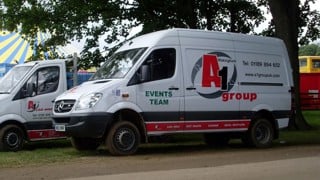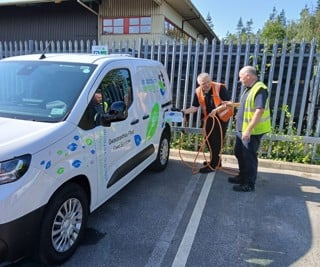By Iain Forsyth, managing director at Mercedes-Benz Vans UK
For years, van drivers were seen simply as operatives responsible for moving goods from point A to B. But that view is not only outdated, it’s holding businesses back from tapping into one of their most valuable assets.
In an era defined by shifting consumer expectations, real-time logistics, and raising operational complexity, the modern van driver is becoming one of the most valuable strategic assets a business can have.
They are becoming critical to how businesses operate, deliver, and most importantly, grow.
They are the customer touchpoint, the brand representative, the route optimiser, the problem-solver and increasingly, a source of strategic insight.
At Mercedes-Benz Vans UK, our annual Under the Bonnet report, which speaks to van drivers and business owners about the challenges they face and opportunities ahead, showed us how the role of the driver has changed.
It revealed 67% of business owners now see drivers as more essential to their operations than ever before.
A third of companies (32%) told us they’ve made a key change to their business, whether to delivery models, customer service processes or scheduling; as a result of the driver's suggestion.
Meanwhile 30% of industry leaders say drivers now play a role in wider business decisions and four in ten told us drivers are part of their future growth plans.
This marks a turning point. Not only in how drivers are perceived, but in how they feel. And by extension, how the businesses that rely on them are led, structured, and grown.
And it goes further.
This level of influence would have been unimaginable even a decade ago.
So, what’s changed?
First, the profile of the van driver has shifted. Today’s drivers come from diverse backgrounds, with a broad range of skills, experiences and ambitions.
Our Under the Bonnet revealed 46% of van drivers under 35 hold a degree. Many are career-minded, tech-savvy and motivated by impact as well as income - a third (34%) said they were looking for more purpose in their careers wanting to know more about their role in the wider company picture
Second, the structure of modern fleet operations has created more interaction points between drivers and the wider business, from real-time tracking systems and digital route planning to customer feedback loops.
Drivers are closer than ever to both the operational and experiential side of delivery. They’re no longer just fulfilling tasks; they are identifying inefficiencies, proposing customer-first solutions, and adapting in real time to market demands.
According to our Under the Bonnet report over a third (37%) of business owners say van drivers are a vital part in winning over customer confidence and 35% see them a valued representative of the business.
This is a shift that fleet operators can’t afford to overlook.
Historically, fleet management has been about efficiency: keeping vehicles on the road, optimising routes, and meeting delivery windows.
But today, the most successful operators are shifting their lens - from vehicles to people and learning to listen to their front line.
Whether it’s altering delivery windows to meet customer preferences, refining handover protocols, or even helping shape future vehicle investment decisions, driver insight is driving smarter strategy.
As these trends grow, it's crucial fleet managers build a culture where feedback flows both ways - from head office to the road, and back again.
It means equipping drivers not just with tools to do the job, but with channels to improve it.
Engaged drivers are more productive. They take greater care of their vehicles. They spot inefficiencies.
They solve problems before they escalate. And perhaps most importantly, they help build a workplace culture that supports retention in a highly competitive labour market.
Looking ahead, the role of the van driver will only grow in importance. The transition to electric mobility, tighter regulations, and increasing customer expectations all require drivers who are adaptable, engaged, and trusted to represent the business on the road.
At Mercedes-Benz Vans, we believe drivers aren’t just doing the job, they’re shaping how it gets done and how it could be done better.
For fleet operators, the opportunity is clear: treat your drivers like the strategic asset they’ve become, and they’ll deliver far more than just the miles.





















Login to comment
Comments
No comments have been made yet.